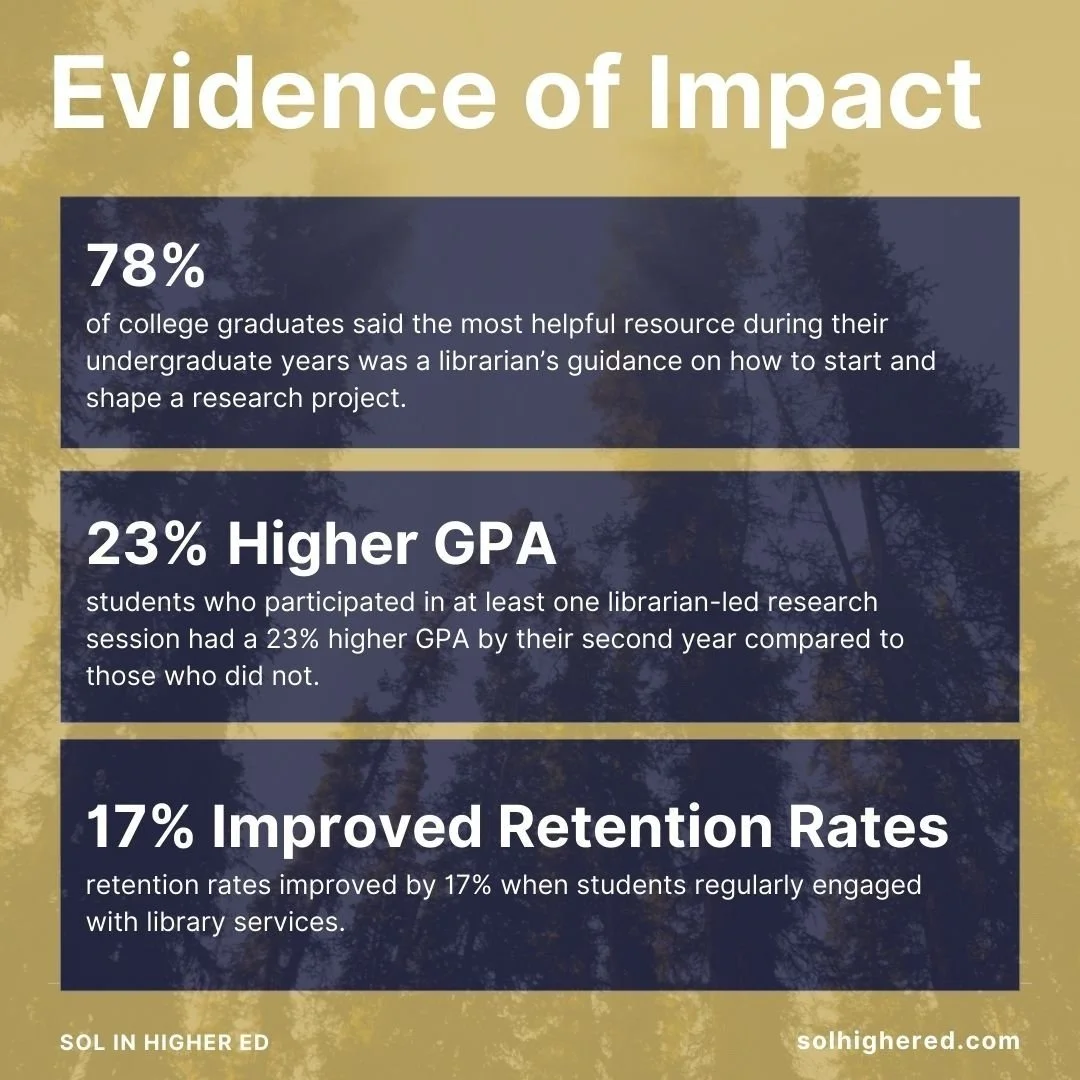Access Does Not Equal Understanding.
In today’s digital age, students have access to an overwhelming amount of information. But access does not equal understanding. So, why are librarians essential in teaching research skills at the college level? And how does their instruction influence student success?
Why Should a Librarian Teach Research Skills?
Colleges often assume that students already know how to research. But many first-year students enter higher education with only a surface-level understanding of how to find and evaluate sources. Google searches and Wikipedia may have helped them in high school, but academic research requires far more critical thinking and strategy.
Here are a few key questions to consider:
Who teaches students how to tell the difference between a peer-reviewed article and a blog post?
How do students learn to navigate databases like JSTOR or EBSCOhost?
What happens when students don’t know how to cite sources properly?
Who helps them avoid misinformation, bias, and plagiarism?
The answer is often a college librarian.
The Librarian's Role Goes Beyond the Library
Librarians are not just bookkeepers. They are educators. They work directly with faculty, design information literacy sessions, and provide one-on-one support to students at all stages of their academic journey.
According to a 2023 study by the American Library Association, students who participated in at least one librarian-led research session had a 23% higher GPA by their second year compared to those who did not.
Another report from Project Information Literacy (PIL) found that 78% of college graduates said the most helpful resource during their undergraduate years was a librarian’s guidance on how to start and shape a research project.
From Basic to Advanced Support
The value of a librarian does not stop with basic skills. As students progress, research demands become more complex. Librarians teach students how to:
Develop research questions and refine them
Identify scholarly vs. non-scholarly material
Use citation management tools like Zotero or EndNote
Analyze and synthesize information
Conduct systematic literature reviews
These are not skills learned in a day. They are built over time, through instruction and feedback, with librarians as the guides.
Evidence of Impact
A 2022 survey from the Association of College and Research Libraries showed that institutions with embedded librarian programs saw a 34% increase in student research confidence scores across all disciplines.
Even more striking, retention rates improved by 17% when students regularly engaged with library services.
Final Questions to Consider
If we know librarians increase student success, why aren’t more professors collaborating with them?
Should research instruction be mandatory for first-year students?
What would college outcomes look like if librarians were fully integrated into the academic curriculum?
The data is clear. Librarians are not optional. They are critical to student achievement, from the first paper to the final thesis.
Sources:
American Library Association. (2023). The Impact of Library Instruction on Student Performance.
Project Information Literacy. (2022). Lessons Learned: How Students Use and Value Librarians in College.
Association of College and Research Libraries. (2022). Academic Libraries’ Role in Student Success.
~ Natasa Hogue


